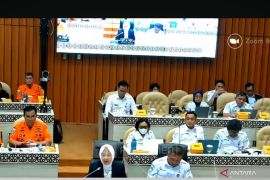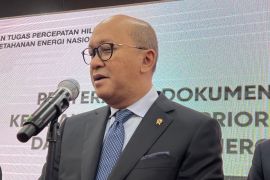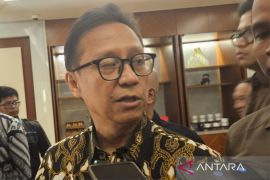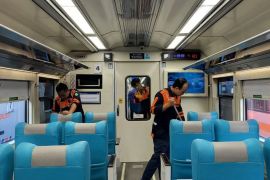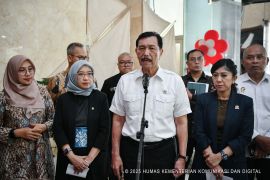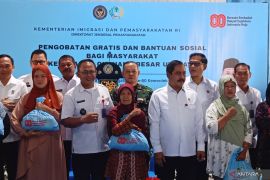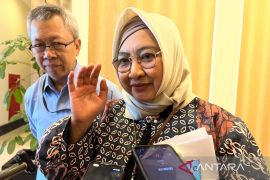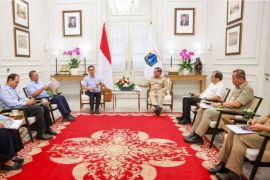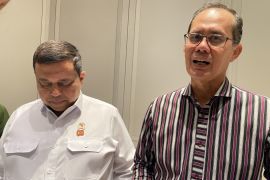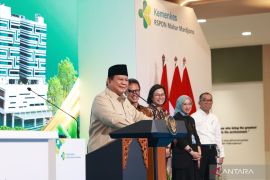MANILA, Philippines, Sept. 25, 2013 (ANTARA/PRNewswire) -- The GSMA has today announced a ground-breaking cooperation between government partners including the Philippines Department of Education (DepEd) and the Technical Education and Skills Development Authority (TESDA), along with Digitel Mobile Philippines Inc. (DMPI), Globe Telecom, and Smart Communications.
In a joint collaboration for mEducation, the GSMA will be working with the Philippines government agencies and all mobile network operators across the K-12 spectrum to provide up to one million Filipino out-of-school youths (OSYs) with additional opportunities to access education, including technical vocational (tech-voc) education, via mobile media. The operators are co-operating to complement the efforts of multiple government agencies by extending knowledge to OSYs, especially those in underserved areas and geographically isolated communities, with the support and reach of mobile technology. The National Statistics Office of the Philippines reports that in 2011, there were at least 6.24 million out-of-school youths in the country[1].
"We are excited to be acting as advisor for this mEducation initiative, providing support to include best practice and business model expertise to the project," said Irene Ng, Head of Asia, GSMA. "Never before has such an ambitious mEducation collaboration taken place in the Philippines, involving all three mobile network operators and two key government agencies. The Asian mEducation market is projected to reach $6.8 billion by 2017[2]. Initiatives such as this, especially involving multi-stakeholder partnership, will drive even greater growth and help to accelerate achievement of the desired objectives for such programmes."
Mobile technology is uniquely positioned to help bring education solutions to learners, including OSYs, in the Philippines. The country has a very high adoption of mobile technology and is known as the 'SMS capital of the world', with Filipinos sending over two billion messages every day. The mobile penetration rate in the country was 105 per cent by the end of 2012 and the smartphone penetration rate nearly tripled between 2010 and 2011, growing from nine per cent to 24 per cent[3].
The GSMA's global mEducation project aims to accelerate the adoption of mobile education solutions, particularly mobile-enabled portable devices, such as e-Readers and tablets. It forms part of the GSMA vision of a 'Connected Life', a world where everything intelligently connects via mobile networks, delivering rich services to businesses and consumers in every aspect of their lives.
"I'm happy about the level of collaboration happening in the mEducation market in the Philippines," commented Mario A. Deriquito, DepEd Undersecretary for Partnerships and External Linkages. "From a government perspective, supporting out-of-school youths is a priority for 2014 and beyond. We welcome the support that can be facilitated by mobile education because we believe it's a flexible medium that can help us tackle a lot of the challenges we face in the education and training sector in our country. Given that many of the efforts to assist OSYs will be localised, mobile technology provides us with a tool that can help unify and coordinate this work even from a distance."
"The Philippines has the potential to become a world leader in service provision of mobile-based tech-voc training," said Secretary Joel Villanueva, Director General, TESDA. "Mobile is an ideal vehicle to provide opportunities for learning and training that would otherwise be inaccessible in a country with numerous islands, particularly to those young people for whom the cost of attending classes or training in person is prohibitive. With this collaboration, we believe that more OSYs will be able to be reintegrated into their communities through innovative programmes and services designed to support them, helping to address the issue of young people leaving school early."
"Through our brand Sun Cellular, we have been supporting pervasive, appropriate and affordable mobile technologies as tools in enabling people and communities," said Orlando B. Vea, President and CEO of DMPI. "Through this collaboration, we hope to see many opportunities opening up for mobile in Education as well as social development in general."
"This collaboration on Mobile Education spearheaded by the GSMA with the government and Filipino telco providers is a great opportunity for industry stakeholders to use the enabling capabilities of ICT for a worthy cause," said Ernest L. Cu, Globe President and CEO. "Globe Telecom has long been committed to using ICT solutions to help the education sector through mobile and broadband connectivity, ICT-enabled content, promoting 21st century teaching methodologies, and even building classrooms. We have a long history of successful collaboration with various private and public institution-partners. The mEducation project of the GSMA is an important initiative that would allow Globe to promote youth development in the country and help them towards a better future."
"Smart is cognizant of the crucial role that mobile plays in democratizing access of both young and adult learners to formal education, something that is in line with the Department of Education's thrust of providing education for all," commented Napoleon L. Nazareno, Smart President and CEO. "With our learning from years of experience with our community partnership programmes in education, we are excited about this initiative. Mobile solutions have come a long way in enhancing the learning process."
The GSMA will be showcasing the mEducation project at the UNESCO Mobile Learning Week and the GSMA Mobile World Congress, both of which will take place in February 2014.
Notes
[1] http://thefilipinoconnection.net/osys-to-get-second-chance-under-abot-alam-program/
[2] Ambient Insight, 2013
[3] Ambient Insight, 2013
About the GSMA
The GSMA represents the interests of mobile operators worldwide. Spanning more than 220 countries, the GSMA unites nearly 800 of the world's mobile operators with 250 companies in the broader mobile ecosystem, including handset and device makers, software companies, equipment providers and Internet companies, as well as organisations in industry sectors such as financial services, healthcare, media, transport and utilities. The GSMA also produces industry-leading events such as Mobile World Congress and Mobile Asia Expo.
For more information, please visit the GSMA corporate website at www.gsma.com. Follow the GSMA on Twitter: @GSMA.
Editor: PR Wire
Copyright © ANTARA 2013
